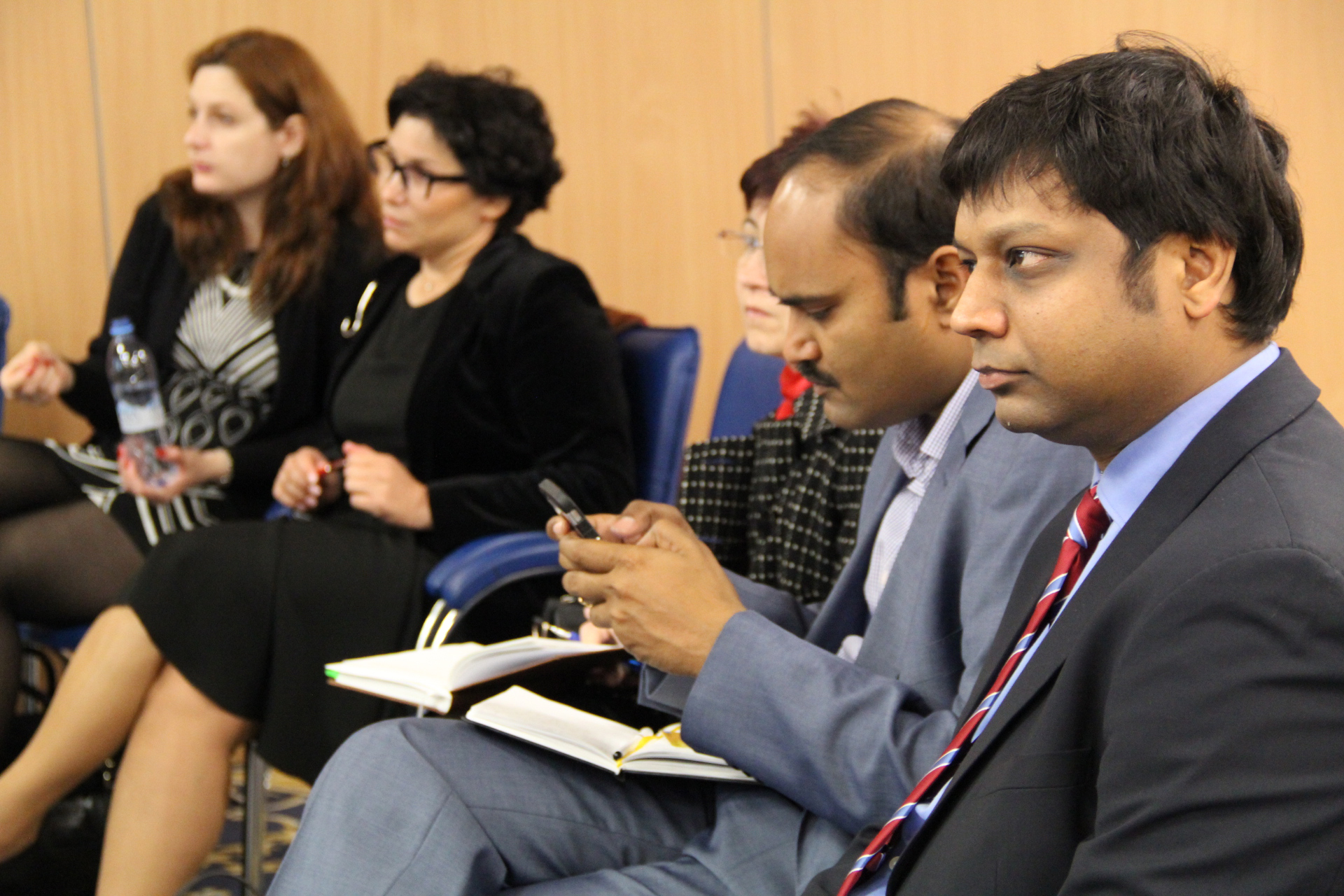 The All-Ukrainian Network of People Living with HIV brought together representatives from Indian and Ukrainian generic drug manufacturers to discuss how to get around barriers to accessing essential medicines in Ukraine. The roundtable discussion “Patent Barriers on Medicines: Potential Opportunities to Overcome the Barriers” was held on 15 April 2015 in Kyiv.
The All-Ukrainian Network of People Living with HIV brought together representatives from Indian and Ukrainian generic drug manufacturers to discuss how to get around barriers to accessing essential medicines in Ukraine. The roundtable discussion “Patent Barriers on Medicines: Potential Opportunities to Overcome the Barriers” was held on 15 April 2015 in Kyiv.
The main goal of the meeting was to explore how to overcome patent barriers using compulsory licensing. In addition, strategies such as patent challenges, patent invalidation court actions and patent law reform were also discussed.
If five key patented antiretroviral medicines that are used in Ukraine today were replaced with generic medicines it could save around US$8.7m a year.
Sergey Kondratyuk, presented existing strategies for overcoming patent barriers highlighting that the system of patent protection in Ukraine has a negative impact on public health. If five key patented antiretroviral medicines that are used in Ukraine were replaced with generic medicines (using compulsory licensing) it could save around US$8.7m a year. Kondratyuk told the audience that the most effective method for overcoming patent barriers are compulsory licensing, patent reform and patent oppositions. He emphasized five key directions for patent reform in Ukraine:
- simplifying compulsory licensing procedures;
- introducing patent opposition procedure;
- definition of strict criteria for medicines’ patentability;
- introduction of international exhaustion of patent rights; and
- implementation of limitation provisions, such as Bolar exception and experimental use.
Oksana Kashyntseva, Head of the Center for Harmonization of Human Rights and Intellectual Property Rights presented potential directions of patent reform and the impacts on accessibility of medicines. She explained that Ukrainian legislation allows for the granting of utility model patents regarding medicines. However, patentability requirements for utility model and inventions are different. Considering that the utility model may have no inventive element, the addition of any new feature in a product ensures its patentability. This legislative provision makes it possible to keep patents live, a process known as ‘evergreening’ patents that limits access to essential medicines. Kashyntseva went on to review potential legal amendments that should be introduced to the Law in Ukraine “On protection of inventions and utility models” to improve access to essential medicines.
Anton Lipuhin, former Head of Legal and Informational Department at State Enterprise (the State Expert Center of MoH of Ukraine) elaborated on the mitigation strategies of the data exclusivity regime in Ukraine. Lipuhin emphasized the importance of TRIPS flexibilities for establishing balance between public and private interests. He proposed the following potential amendments to mitigate the DE regime in Ukraine:
- introduction of “3+2+1” DE scheme (3 years data exclusivity, 2 years market exclusivity, opportunity of prolongation up to 1 year, in case a new indication is discovered);
- possibility for generic manufacturers to use registration data after expiry of 3 years in order to receive a market authorization;
- restricting data exclusivity regime only medicines that have new chemical compound(-s);
- data exclusivity period should be counted in Ukraine from the date of first market authorization of medicine anywhere in the world;
- extension of compulsory licensing on the medicines protected by data exclusivity.
Mykyta Trofymenko from the All-Ukrainian Network of PLWHA presented on compulsory licensing and normative obstacles for this mechanism in Ukraine. He stated that at the present compulsory licensing is very important due to a reduction of Ministry of Health budget, the rise in prices on medicines (especially, patented ones), high-burden epidemic of HIV/AIDS and tuberculosis, etc. An important part of Trofymenko’s report highlighted critical gaps in Compulsory Licensing Regulation. To remove these gaps he proposed to:
- harmonize procedure of compulsory license and the Law of Ukraine “On medicines”
- improve terminology used in Compulsory Licensing Regulation;
- harmonize with the TRIPS Agreement the pre-conditions to the CL request;
- clarify the procedure of voluntary license negotiations;
- simplifying formula for calculation of adequate renumeration;
- have a provision on overcoming data exclusivity by the mechanism of compulsory licensing.
The last presenter, Petro Borovyk, managing partner of patent agency “Borovyk and partners” presented on strategies of patent invalidation actions. He demonstrated to the participants of the roundtable practical aspects of forensic expertise in this category of court cases. He also told audience regarding medicines patenting, drafting of patent claims, grounds of standing before the court, drafting of invalidation claim and typical mistakes in invalidation claim drafting.
As a result, most of participants agreed that while the compulsory licensing is an important tool to address patent barriers to accessing medicines, it could not be used now due to significant gaps in the current version of compulsory licensing regulation. Some representatives of Ukrainian generic antiretroviral drug manufacturers stated they are ready to use compulsory licensing after fixing the procedure provided in the Compulsory License Regulation.




